We are clearly in an age of reversion to oligarchic domination and lockout of dissent, so the issue is that of formation of a counter-culture, starting with the life of the mind.
H’mm, as a preliminary, let us look briefly at a refresher on a more useful ideological/political spectrum than the usual LEFT/RIGHT (which has no coherent definition of centre and right, where also Nazism/Fascism is actually of the left . . . contrary to popular notions):
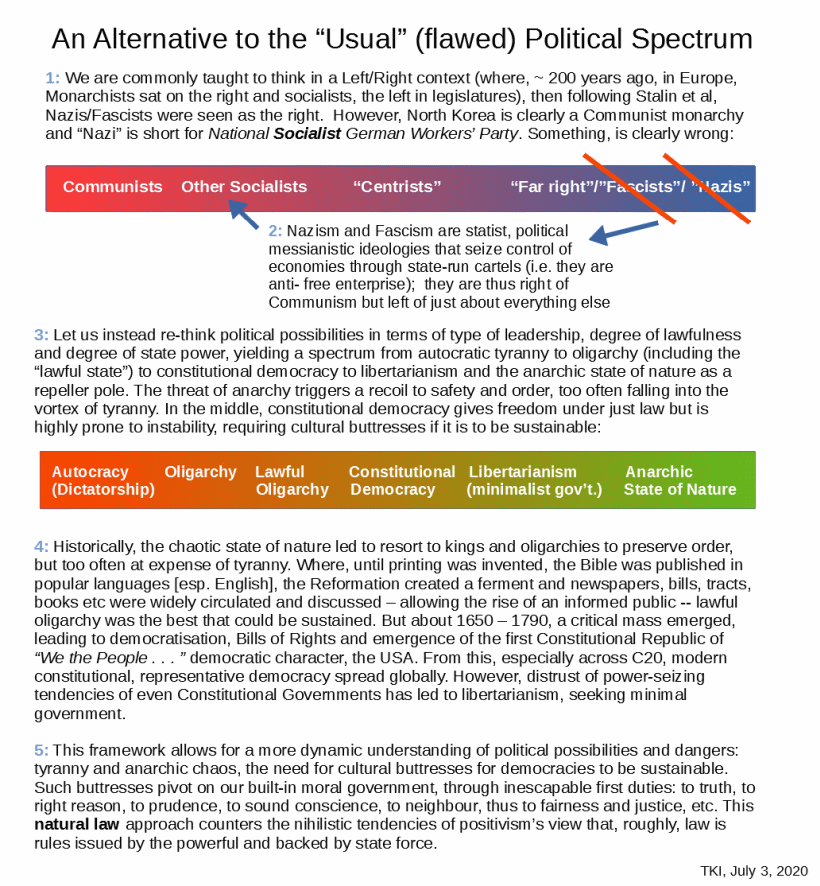
This is necessary because, regrettably, power dominates over essentially anything, especially in a time of deep polarisation. We can map that through the seven mountains/pillars of influence model:
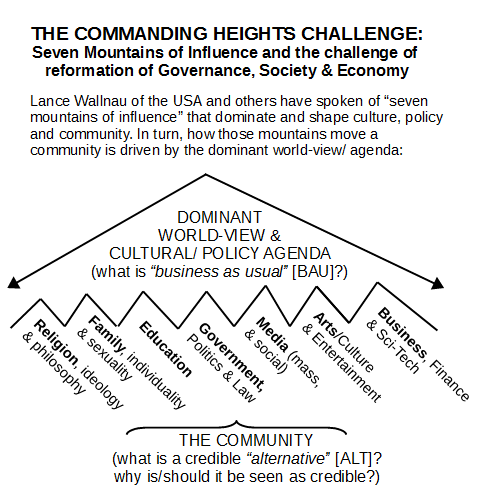
This naturally points to the cliff metaphor and warning:
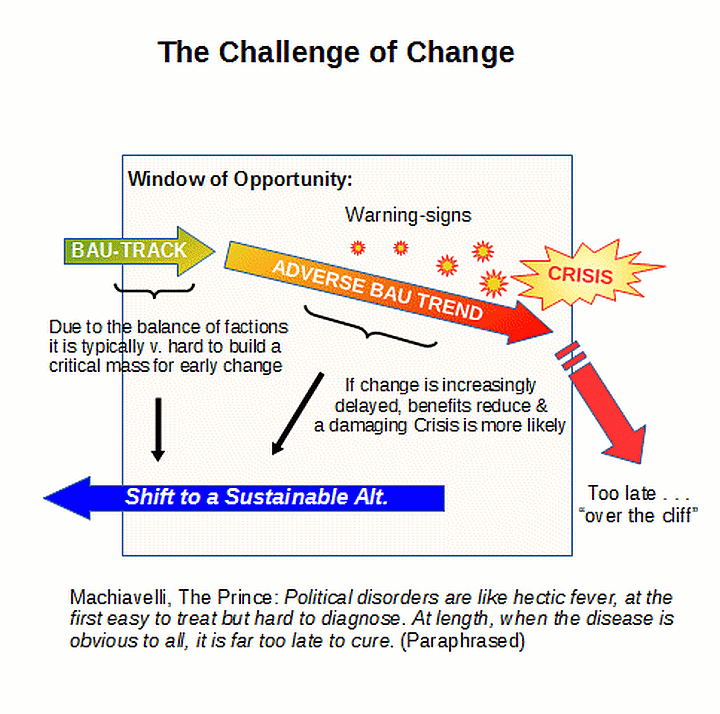
Let me add, that with our bounded rationality, we need to ponder the limitations on how we think:
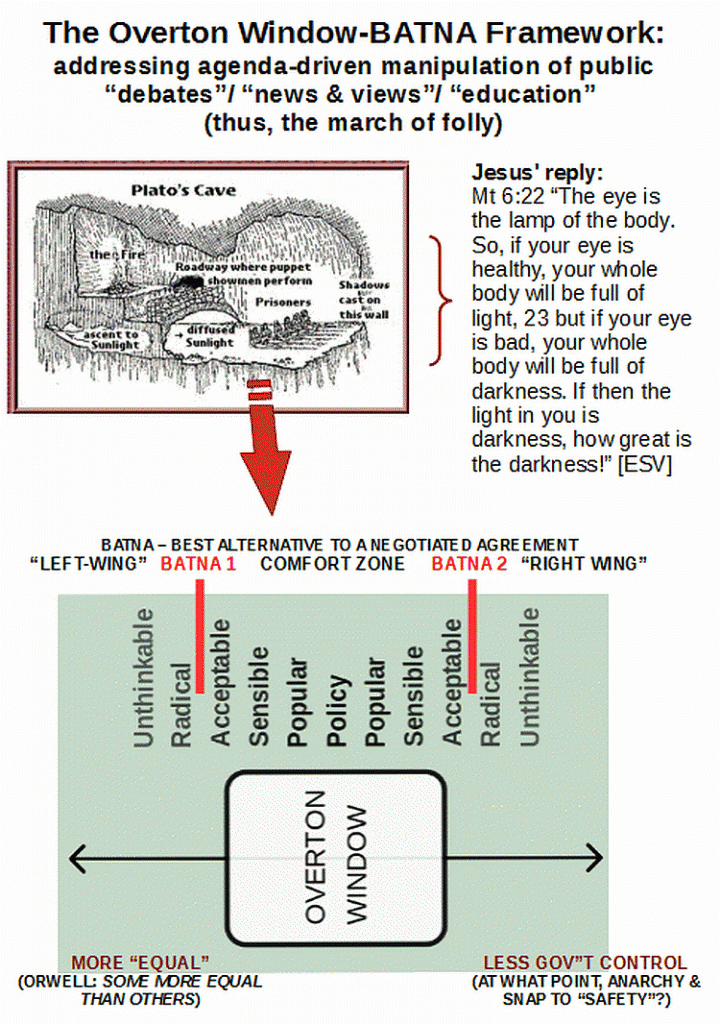
For there to be a choice, there has to be sober-minded thinking through of issues in fora that are not unduly censored, by people who rise above small-p party-spiritedness. Or else we turn Mencken’s cynicism into prophecy:
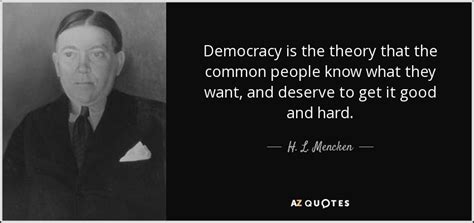
Accordingly, the first substantial issue is inescapable first duties of reason; which also happen to be pivotal to sound framing of law and government as well as opening the door to understanding roots of reality in a world with significantly free, rational, responsible, morally governed creatures — arguably, including us:
FIRST DUTIES OF RESPONSIBLE REASON
We can readily identify at least seven inescapable first duties of reason. “Inescapable,” as they are so antecedent to reasoning that even the objector implicitly appeals to them; i.e. they are self-evident. Namely, duties,
1 – to truth,
2 – to right reason,
3 – to prudence,
4 – to sound conscience,
5 – to neighbour; so also,
6 – to fairness and
7 – justice
x – etc.
Such built-in . . . thus, universal . . . law is not invented by parliaments, kings or courts, nor can these principles and duties be abolished by such; they are recognised, often implicitly as an indelible part of our evident nature. Hence, “natural law,” coeval with our humanity, famously phrased in terms of “self-evident . . . rights . . . endowed by our Creator” in the US Declaration of Independence, 1776. (Cf. Cicero in De Legibus, c. 50 BC.) Indeed, it is on this framework that we can set out to soundly understand and duly balance rights, freedoms and duties; which is justice, the pivot of law.
The legitimate main task of government, then, is to uphold and defend the civil peace of justice through sound community order reflecting the built in, intelligible law of our nature. Where, as my right implies your duty a true right is a binding moral claim to be respected in life, liberty, honestly acquired property, innocent reputation etc. To so justly claim a right, one must therefore demonstrably be in the right.
Likewise, Aristotle long since anticipated Pilate’s cynical “what is truth?”: truth says of what is, that it is; and of what is not, that it is not. [Metaphysics, 1011b, C4 BC.] Simple in concept, but hard to establish on the ground; hence — in key part — the duties to right reason, prudence, fairness etc. Where, prudence can also be seen via Aristotle’s summary: “. . . [who aptly] defined prudence as recta ratio agibilium, ‘right reason applied to practice.’ The emphasis on ‘right’ is important . . . Prudence requires us to distinguish between what is right and what is wrong . . . If we mistake the evil for the good, we are not exercising prudence—in fact, we are showing our lack of it.” [NB: This implies that through sound reason and balanced, insightful judgement applied to the material evidence, factors, claims and circumstances in a situation (which may often be clouded, contentious and confusing or even willfully distorted by deceivers), we soundly discern and warrant truth and risks or uncertainties . . . yes, we need to ponder and warrant degrees of risk and uncertainty . . . so we can confidently, soberly act as we are rightly guided. This requires that we act through trained, experienced wisdom that delights in “solid food” which is “for the mature, for those who have their powers of discernment trained by constant practice to distinguish good from evil.” [Heb 5:14.]
And yes, we find here no comfort for those inclined to remain over-long at the milk stage: “everyone who lives on milk is unskilled in the word of righteousness, since he is a child” [v. 13]. Indeed, in the Proverbs, the simple youth are counselled to study the proverbs, precisely “to give prudence to the simple” [Prov 1:4.]
There is no wrong in being young, simple and naive, but this is a mark of baby-hood, and a healthy child grows beyond that stage in good time. Long delay in immaturity and in struggling to learn and master the simple is not a good sign: “though by this time you ought to be teachers, you need someone to teach you again the basic principles of the oracles of God. You need milk, not solid food.” [Heb 5:12. It is of course just after this that the author points to the famous six foundational, ABC principles in 6:1 – 2, repentance, faith, baptisms, laying on of hands, resurrection of the dead, eternal judgement. This is what the “milk” is. Note, it is led by meta + noia, a profound change in attitude, thought patterns and inclination of life leading to a right-about turn from the wrong, false and foolish to the ways of truth and right in love to God and man.]
This, too, is how prudence becomes “auriga virtutum — the charioteer of the virtues” (as Aquinas put it); the skilled steersman who guides and controls the chariot. Or even, the ship of state (what is implicitly in view in the Proverbs: “[t]he proverbs of Solomon, son of David, king of Israel”, Prov 1:1).
From this, we may also see how the first duties naturally fall into a logical chain in light of the key factors, loving God who is Truth Himself, and loving Neighbour made in God’s image just as we are; with sound conscience as pivot:
[i] truth –> right reason –> prudence, so sound conscience clears for action. Then, through the voice of sound conscience,
[ii] love for neighbour who is as we are requires fairness and justice etc.]
Thus, too, we may compose sound civil law informed by that built-in law of our responsibly, rationally free morally governed nature; from such, we may identify what is unsound or false thus to be reformed or replaced even though enacted under the colour and solemn ceremonies of law.The first duties, also, are a framework for understanding and articulating the corpus of built-in law of our morally governed nature, antecedent to civil laws and manifest our roots in the Supreme Law-giver, the inherently good, utterly wise and just creator-God, the necessary (so, eternal), maximally great being at the root of reality.
This is where we must begin. Without this, there is no basis for that comity required to have sound academic disciplines, much less general public policy or even current events discussion. The ever-eager Red Guard censors are at our heels.
The case of Mathematics is central.
Mathematics, being best understood as [The study of] the logic of structure and quantity, where certain core intelligible mathematical facts are framework to any possible world (= a sufficiently complete chain of propositions describing a possible state of affairs), and lead to a programme of analysis and elaboration of logic-model worlds that may then apply to relevant situations of interest. For example, per von Neumann:
{} –> 0
{0} –> 1
{0,1} –> 2
. . . .
{0,1,2 . . .) –> w, omega
From reflecting on the principle of distinct identity, we see that for a world W to be distinct from some arbitrarily close neighbour W’, we have some A in W that is not in W’, so
W = {A|~A} and also W = {A|W’}, thence,
we see the partition | is empty, manifesting nullity.
A is a simple and ~A = W’ is a complex, unity.
With distinct unities, we find duality, and already we see that von Neumann’s framework applies to any distinct world.
It is truly universal, i.e. we find the natural counting numbers, N as an abstract structure necessarily present in and framework to any possible world.
From N, we can define additive inverses so for n in N, -n is such that n + (-n) = 0, i.e. we have that vector set where elements have both size and direction in an abstract space, the integers Z. Taking ratios, we have the rationals, Q. Reals bring in transfinite converging sums of rationals without repeating cycles when displayed in place value form, R. From that we go in a second orthogonal spatial direction, to C, using the j* rotating operator: j*x for all x in R defines the imaginary axis by anticlockwise rotation through one right angle and j*j* x is – x so we see j is sqrt – 1.
Beyond we define the hyperreals R* on the reals R being mileposted by N. H = 1/h, where h is smaller than 1/n for any finite n in N, where for any k in N the von Neumann succession continues k+1, k+2 etc, i.e. we cannot exhaust N stepwise. From this h is an infinitesimal hyperreal near 0; H is a transfinite integer hyperreal and we see a connected domain from zero and N,Z,Q,R to the hyper-domain R* such that any r in R may be surrounded by an infinitesimally altered cloud of form r + h, *r*, in effect vector shifting and adding the cloud *0* to r. (This allows us to use Robinson’s tamed infinitesimals and Model Theory etc to view Calculus as an extension of algebra.)
Notice, we have nowhere specified a particular individual world, this holds for any distinct world, for all possible worlds. It is reality-universal and possibility-universal. That is, a core domain of numbers, associated relationships and operations is a body of abstracta framework for any possible world, physical or imaginary. Hence, immediately, some of the universal power of both mathematics and logic. Hence too, we can recognise a category of beings, necessary, world framework entities; abstracta that constrain what is possible, by laying out constraints on possible being.
We can pause to summarise key first principles of right reason:
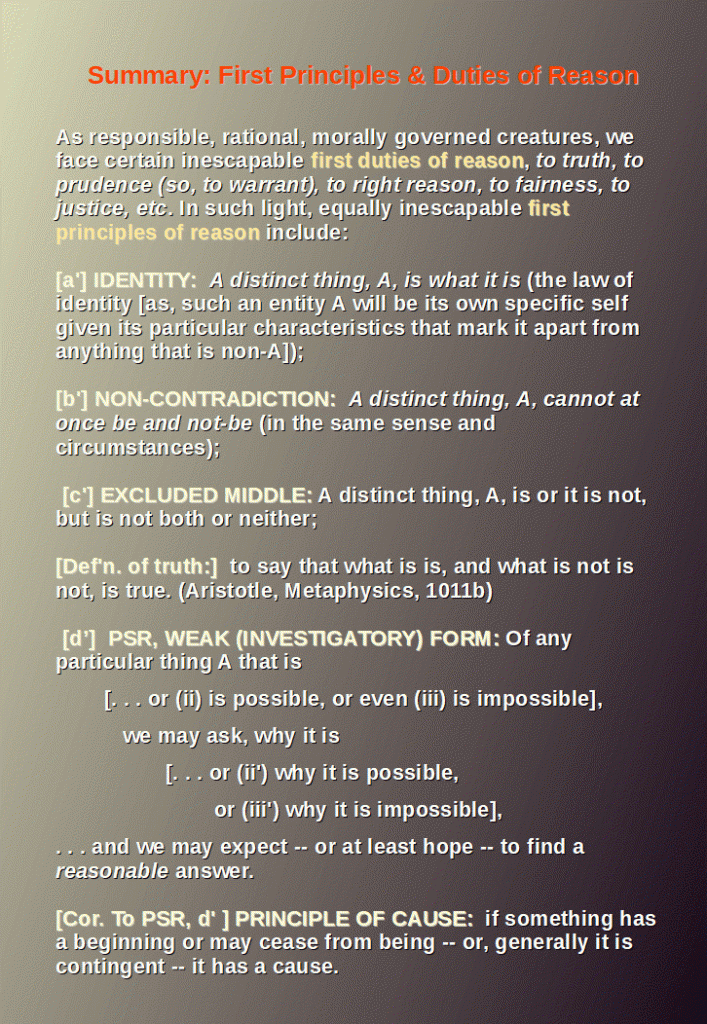
If we want a bit more on the first triad:
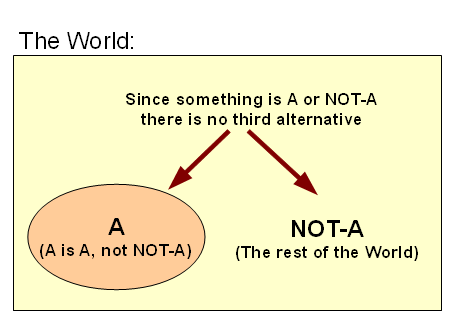
Where, we may ponder Science and linked technology (Computing being in key part a technology of Mathematics, which obviously is not an empirical science but a logic-constrained and guided field of study), as a domain of inductive reason pivoting on inference to best current — hopefully progressive — explanation:
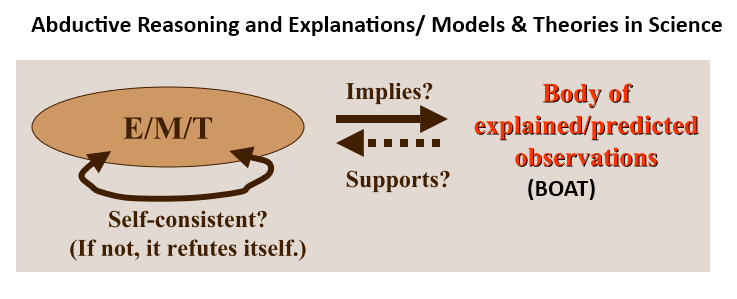
These, we must not lose sight of, or all will be lost.
Going forward, that we are morally governed creatures has profound worldview import. For, at least one possible world, which is actualised, has in it such creatures. The root of all reality must be such that such a world is adequately accounted for.
That opens the door to serious consideration of ethical theism, which posits that the explanation for such a world is the inherently good, utterly wise creator God, a necessary [worlds-framework and so too eternal] and maximally great being.
These, we must not lose sight of. END
PS: Eugenics Congress:

U/D1 Jan 12: An adapted Overton Window analysis, applied to the peril of the new Jacobins:
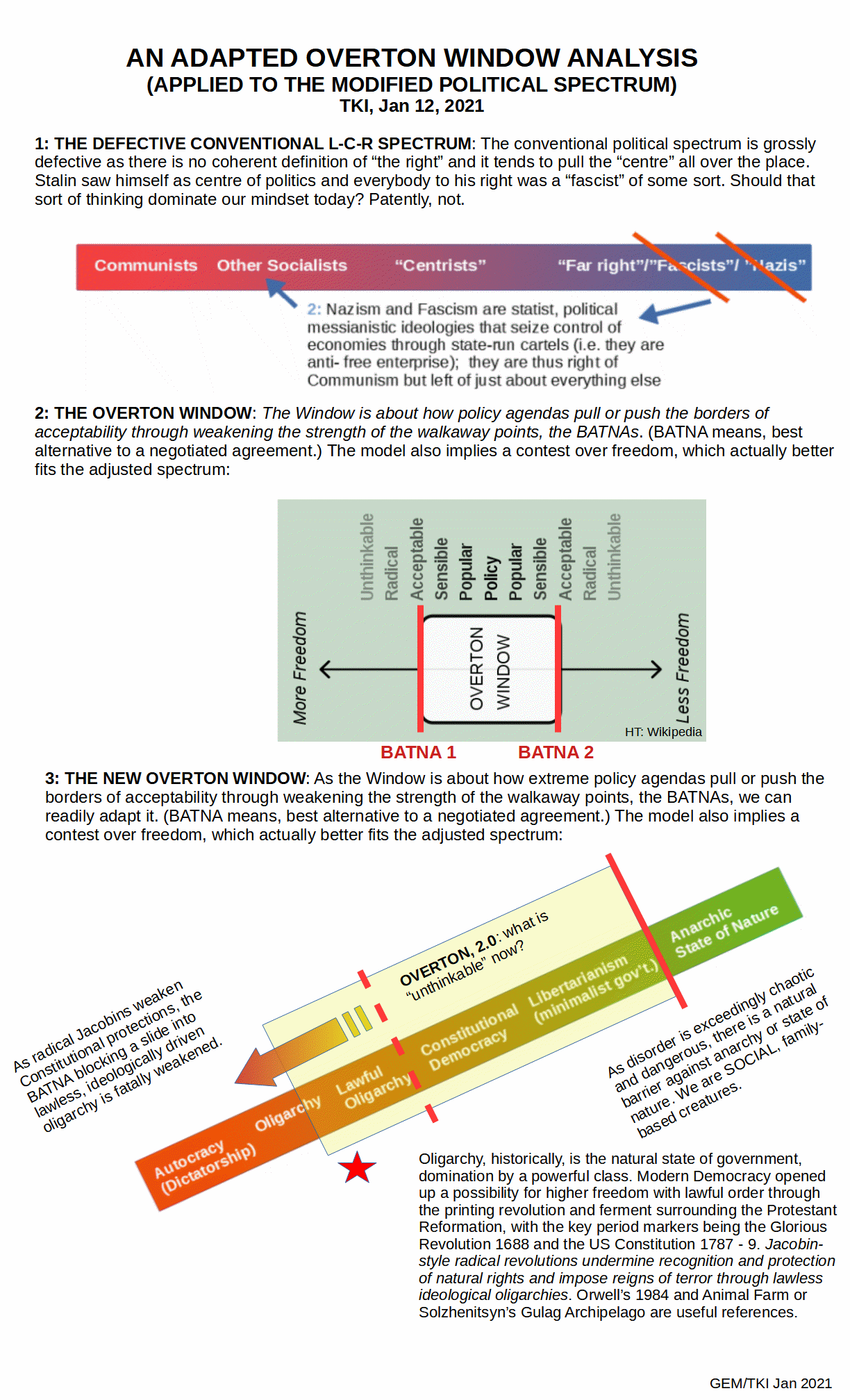
U/D2, Jan 13, the issue of the crooked yardstick:

In that light, consider Plato’s parable of the cave:
Not, as a fallacious cosmology but as a study on how a manipulated public reacts to truth. Ask yourselves, who is running the puppet shadow-show confused for reality and who is running the prison that locks up denizens from discovering the truth for themselves. (Then, ponder the course of current events.)
U/D3, Jan 18: Impact of cumulative evidence, as a part of first principles of reason in an inductive context:
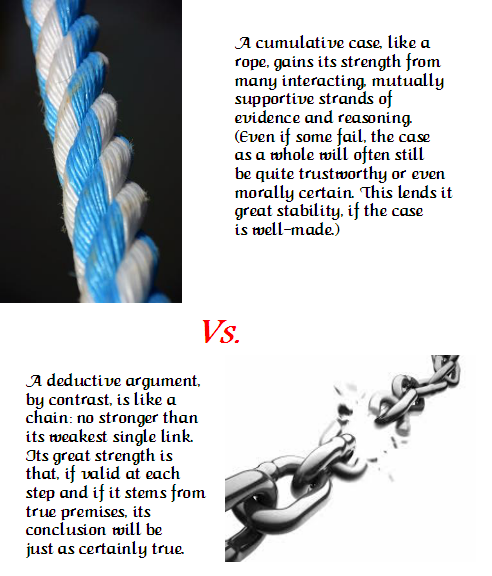
U/D4 Jan 18, to point to the documentation of the McFaul Colour Revolution programme and the SOCOM Insurgency Escalator:
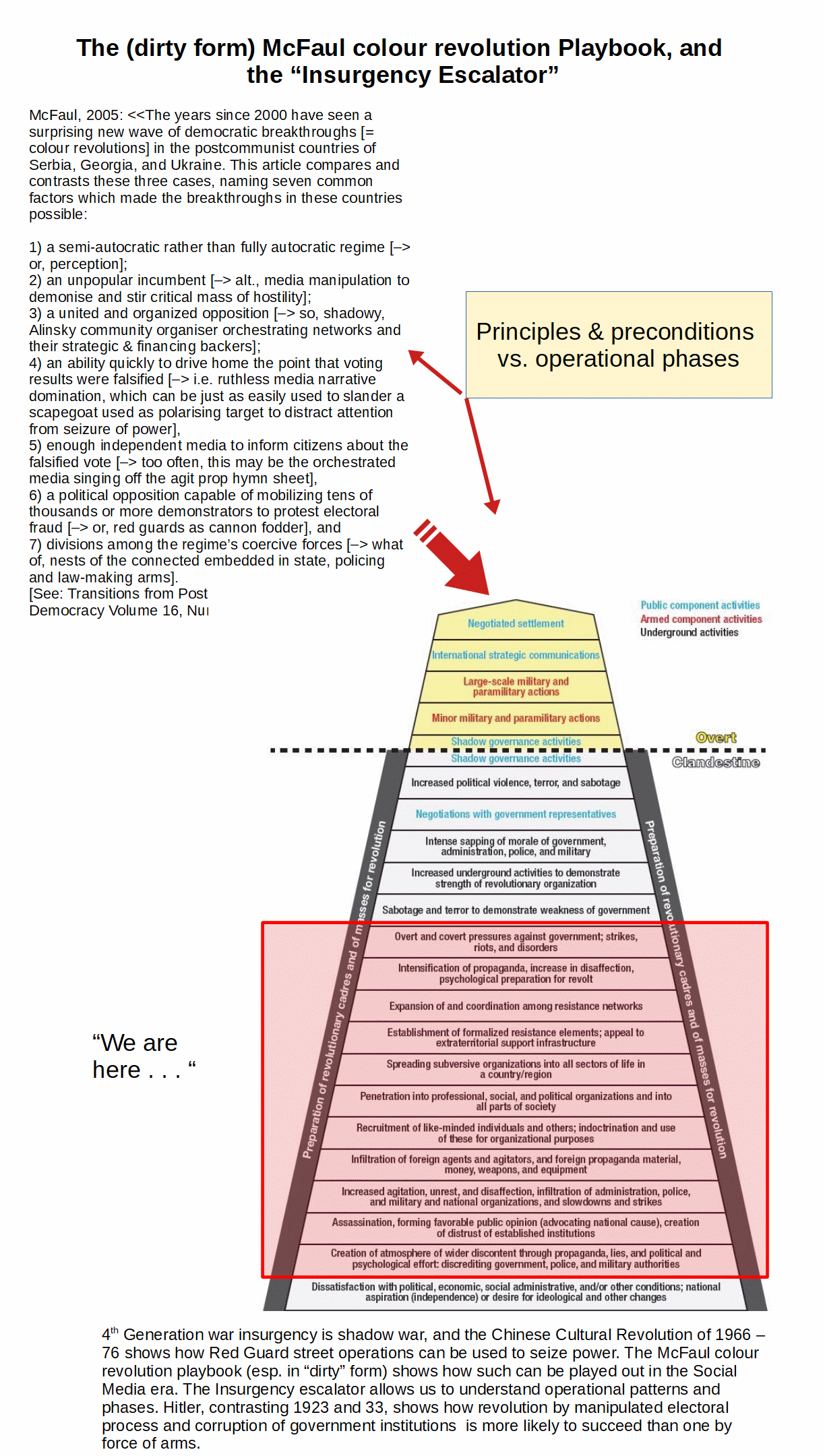
Where, note from the earlier U-Haul a Riot thread on red guard street theatre operations tied to radical Jacobin networks . . . there is much more behind that:
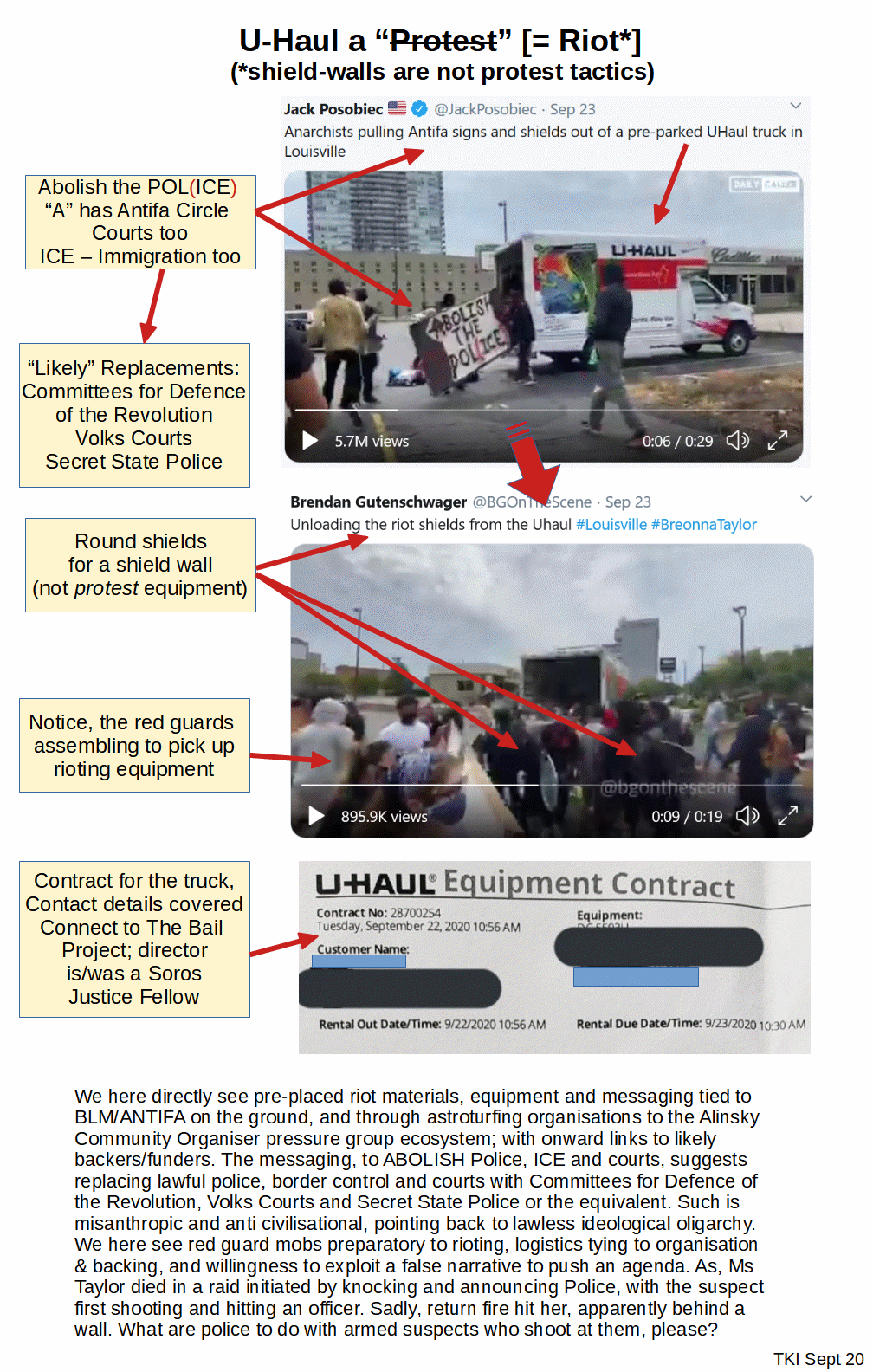
That is, it seems there is little matter of who is rioting to be addressed.
Where, this summary of points of concern by Navarro is a good place to begin pondering the “baseless” talking point that was used below to personally attack me as poster of the OP and host of the live event tracking threads:

U/D5, Jan 19: It is becoming apparent that as part of reforming thinking we need to re-orient our understanding of war, strategy and associated operations in light of the unlimited scope, full spectrum of force options, social- space- is- the- battlespace evolution of warfare under 4th generation war principles. First, while we may not be interested in war — in a world of ruthless geostrategic operators who lack power to simply steamroller those blocking imposition of their will — the vultures not the eagles — war may well be interested in us.
So, if near-perpetual war is in every sphere and across the spectrum of force options (most often non kinetic) we need to map the social space, so let me repeat the seven mountains/pillars of influence model:

Where, we can map the evolution of war:
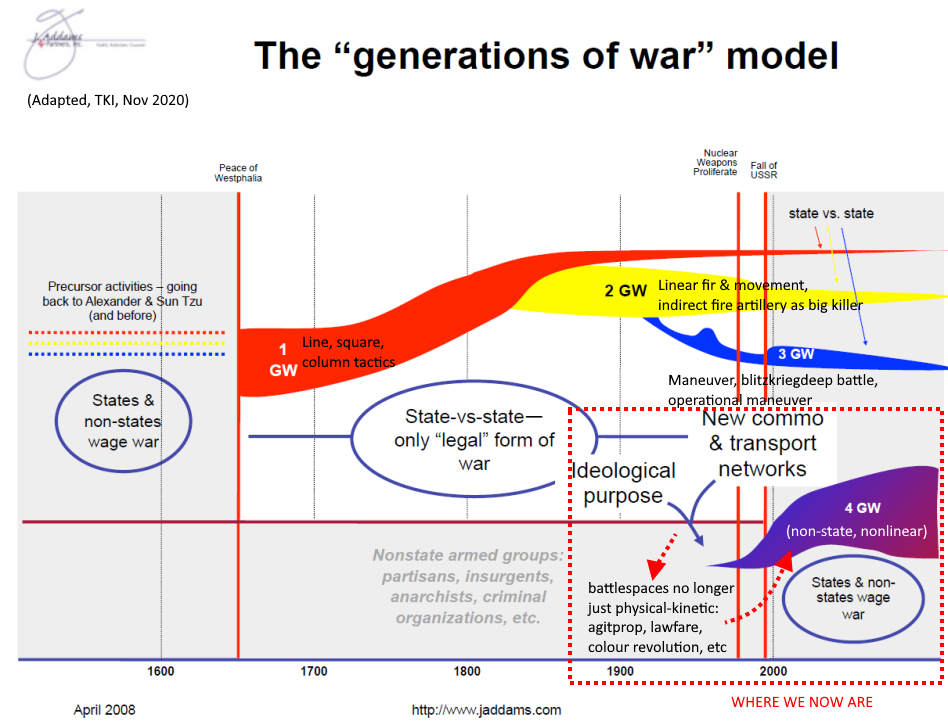
In that context, let us note on Unrestricted Warfare, using a summary of the 1999 work by PLA Air Force Colonels Qiao Liang and Wang Xiangsui:
In 1999, two Chinese colonels wrote a book called Unrestricted Warfare, about warfare in the age of globalization. Their main argument: Warfare in the modern world will no longer be primarily a struggle defined by military means — or even involve the military at all.
They were about a decade and a half before their time.
Colonels Qiao Liang and Wang Xiangsui argued that war was no longer about “using armed forces to compel the enemy to submit to one’s will” in the classic Clausewitzian sense. Rather, they asserted that war had evolved to “using all means, including armed force or non-armed force, military and non-military, and lethal and non-lethal means to compel the enemy to accept one’s interests.” The barrier between soldiers and civilians would fundamentally be erased, because the battle would be everywhere. The number of new battlefields would be “virtually infinite,” and could include environmental warfare, financial warfare, trade warfare, cultural warfare, and legal warfare, to name just a few. They wrote of assassinating financial speculators to safeguard a nation’s financial security, setting up slush funds to influence opponents’ legislatures and governments, and buying controlling shares of stocks to convert an adversary’s major television and newspapers outlets into tools of media warfare. According to the editor’s note, Qiao argued in a subsequent interview that “the first rule of unrestricted warfare is that there are no rules, with nothing forbidden.” That vision clearly transcends any traditional notions of war.
Unrestricted Warfare was an explicit response to the reigning Western military orthodoxy of the time. The preface is dated January 17, 1999, which the authors note was the eighth anniversary of the outbreak of the 1991 Gulf War. In many ways, their argument refuted many of the Western lessons drawn from that conflict: that wars could be short, sharp, and dominated by high-technology weaponry used with stunning precision to shatter an enemy’s armed forces in hours or days. By 1999, U.S. military thinking was dominated by the revolution in military affairs and network centric-warfare, which relied on advanced technologies to give the United States total battlefield dominance.
But Qiao and Wang argued that the battlefield had fundamentally changed. It was no longer a place where militaries met and fought; instead, society itself was now the battlefield. Future wars would inevitably encompass attacks on all elements of society without limits. Military battles resembling those of 1991 might become secondary elements of conflict — if they even occurred at all.
In short, war that by and large does not SEEM to be war due to lack of naked high kinetic weaponry in action. War that is only visible as war once one recognises the involvement of ruthless domination and subjugation by use of force and deception. Force, that is often masked as legitimate actions (often, by turnabout projections of blame . . . maskirovka); force calibrated to seem legitimate to the superficial onlooker.
Force, that needs not involve state actors or states. Which, gives it its 4th generational character.
War waged by vultures in the shadows, not just obvious ones in the sky.
War, that is only over, when the vultures themselves are checkmated and irrecoverably defeated. With history signposted so they cannot regroup to rebrand and come again, as obviously has happened with Marxism’s shiny new brand, critical theories.
U/D6, Jan 19: Ms Clinton and Ms Pelosi, unsubstantiated accusation of treason, screenshot:
